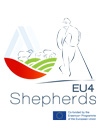Farm management
|
Course title: |
Farm management |
|
|
Course code: |
IFFMN |
|
|
ECTS: |
5 |
|
|
In-class hours |
Lectures: |
30 |
|
Laboratory work/Tutorials: |
30 |
|
|
Self-preparation hours |
Practical training: |
- |
|
Other: |
75 |
|
|
Total hours: |
125 |
|
|
Language: |
English |
|
|
Study cycle: |
BSc, Master |
|
|
Semester: |
Winter, summer |
|
|
Faculty: |
Faculty of Economics |
|
|
Name of the lecturer(s): |
Assoc. Prof. Violeta Dirimanova, PhD |
|
|
Mode of delivery: |
Face-to-face, distance learning |
|
|
Prerequisites: |
Basic of the Management |
|
|
Learning outcomes of the course unit: |
Farm Management is an economic study course with a clear aim and practical knowledge that serves the management, accounting and financial activities of enterprises in the agricultural business. It is based on acquired knowledge of fundamental economic courses and includes theoretical, methodological and applied issues of modern agricultural management. The study course provides knowledge of the based management methods, content and methods of agricultural management approaches, rational management of agricultural production and the management of workforce employment. The study course discusses questions related to the contents of the managerial processes, the steps of taking management decisions, types of decisions and the style and methods of a leadership manager. The course study offers a practical interpretation of economic principles, refracted through the specifics of agricultural production. The main task of education is to provide to the students durable theoretical knowledge and practical skills in modern management. This will help them to build specific knowledge and make them highly qualified managers with high professional skills in agribusiness. |
|
|
Course contents: |
LECTURES 1. Introduction into Farm Management. 2. Management environment. Evolution of agricultural management. 3. Decision-making process – types and steps. 4. Managing the costs in the agricultural enterprise. Economic principles applied for Farm Management. 5. Production investments. Production costs. 6. Using Farm Budget in Decision Making. 7. Managing the costs in the agricultural enterprise. Economic principles applied for Farm Management. 8. Production costs. Using Farm Budget in Decision Making. 9. An analysis of the breakeven point. Principle of the marginal cost. A principle of substitution from one cost to another. 10. The information as a resource for supporting the management activities and financing the farm business. 11. Analysis of agricultural activities in the farm. 12. Style and methods of work for agricultural managers. 13. Risk management. 14. Planning, evaluation and selection of the labor for the agricultural enterprise. TUTORIALS 1. Practical examples for defining production costs. Using Farm Budget in Decision Making 2. Practical examples of the analysis of the breakeven point, the principle of the marginal cost and the principle of substitution from one cost to another. 3. The role of the information or innovation as a resource for supporting the management activities and financing the farm business. 4. Practical examples of the analysis of agricultural activities in the farm. 5. Style and methods of work for agricultural managers. 6. Risk management. Planning, evaluation and selection of the labor for the agricultural enterprise. 7. Discussion of the short assignment prepared by the students. |
|
|
Recommended or required reading: |
1. Herbst, J.H., and D. E. Erickson (1996) Farm Management – Principles, Budgets, Plans, Stipes Publishing L.L.C. 2. Newman, M. E. and W.J. Wills (1994) Agribusiness Management and Entrepreneurship, Interstate Publishers, Inc. 3. Koprivlenski, V. and V. Dirimanova (2010) Agricultural Management, Academic Publishing House of Agricultural University |
|
|
Planned learning activities and teaching methods: |
The main part of the material in Farm Management is taught through lectures. The lectures of the teaching course are delivered through Microsoft PowerPoint presentations. The conversations and discussions are used in order to achieve additional knowledge and skills. During the tutorials, the students solve cases and practical examples related to the lectures’ materials. Finally, the students will prepare a short assignment and present. |
|
|
Assessment methods and criteria: |
Participation in class discussions-10% Projects- 40% Final written exam- 50% |
|
 - Events on the occasion of the 80th anniversary of AU
- Events on the occasion of the 80th anniversary of AU











